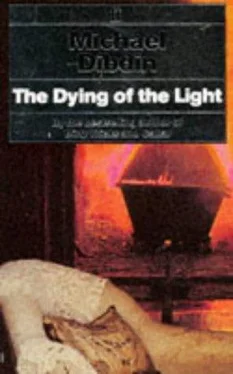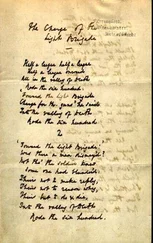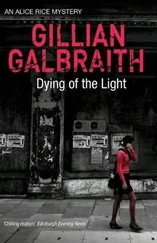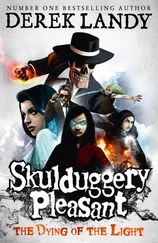Michael Dibdin - The Dying of the Light
Здесь есть возможность читать онлайн «Michael Dibdin - The Dying of the Light» весь текст электронной книги совершенно бесплатно (целиком полную версию без сокращений). В некоторых случаях можно слушать аудио, скачать через торрент в формате fb2 и присутствует краткое содержание. Жанр: Классический детектив, на английском языке. Описание произведения, (предисловие) а так же отзывы посетителей доступны на портале библиотеки ЛибКат.
- Название:The Dying of the Light
- Автор:
- Жанр:
- Год:неизвестен
- ISBN:нет данных
- Рейтинг книги:5 / 5. Голосов: 1
-
Избранное:Добавить в избранное
- Отзывы:
-
Ваша оценка:
- 100
- 1
- 2
- 3
- 4
- 5
The Dying of the Light: краткое содержание, описание и аннотация
Предлагаем к чтению аннотацию, описание, краткое содержание или предисловие (зависит от того, что написал сам автор книги «The Dying of the Light»). Если вы не нашли необходимую информацию о книге — напишите в комментариях, мы постараемся отыскать её.
The Dying of the Light — читать онлайн бесплатно полную книгу (весь текст) целиком
Ниже представлен текст книги, разбитый по страницам. Система сохранения места последней прочитанной страницы, позволяет с удобством читать онлайн бесплатно книгу «The Dying of the Light», без необходимости каждый раз заново искать на чём Вы остановились. Поставьте закладку, и сможете в любой момент перейти на страницу, на которой закончили чтение.
Интервал:
Закладка:
‘Yes, isn’t it?’ she returned heartily.
With a broad smile, Weatherby continued along the path. In his straw hat and linen suit, recovered from a trunk of his belongings discovered in the attic, he looked and moved like a younger brother of the man who used to sit slumped in his chair by the fireplace until the time came to shuffle back to bed. A change no less dramatic was to be seen in the other residents of Eventide Lodge. It was only now that Rosemary realised the extent to which she had come to accept that their condition was an inevitable consequence of the ageing process, only to be expected in people who were virtually at death’s door. She had been astounded by the effect of a healthy diet, exercise, fresh air and renewed contact with their families and the outside world.
Not that the transition had been entirely smooth. Purvey was still under medical supervision after suffering a nervous collapse due to his belief that the ‘new owners’ were going to turn him out. Charles Symes, too, was in hospital, the media interest in the affair having pushed him to the front of the queue for his operation. Even Rosemary had suffered mild attacks of anxiety following the abrupt collapse of the system which had ruled their lives for so long. The day the plastic sheeting covering the windows had been torn down had been particularly fraught, with both Grace Lebon and Samuel Rossiter requiring sedation. But by far the worst affected had been Belinda Scott, who tried to get the others to join her in a campaign of passive resistance to the changes. When that failed, she had gone on hunger strike, accusing everyone else of betraying the rightful authority of Mr Anderson and Miss Davis and threatening to exact a terrible retribution when they returned.
However, the chances of that happening were remote indeed. The charges of wilful cruelty and gross neglect on which the siblings had been arrested the previous week had been substantiated beyond a vestige of doubt both by the residents’ statements and by the evidence of the medical examinations they had all undergone. The discovery that a resident of the Lodge named Hilary Bryant, who had since died, had been persuaded to alter her will in the Andersons’ favour, and that pressure had been put on others to do the same, had sealed their fate. Even if by some miracle they escaped a prison sentence, their careers in residential care for the aged were quite clearly over.
Pending further developments, Eventide Lodge had been placed in the care of the Local Health Authority, who had staffed it with personnel recently been made redundant owing to the closure of the geriatric wing of a hospital in another part of the county. Their cheerful attentions had done wonders to awaken the residents from the catatonic stupor and paranoid delusions into which most of them had retreated, but an equally important factor had been the letters, phone calls and visits from friends and relatives horrified to learn what had been going on behind the genteel facade which the Andersons had maintained-and ashamed that they had not made it their business to find out earlier.
In the attic of the Lodge, the new staff had found over twenty dustbin liners crammed with post which the Andersons had deliberately withheld to increase the residents’ sense of isolation and dependence. All outgoing letters were read by Anderson or Miss Davis, and any reference to conditions at the Lodge censored. The resulting anodyne communications served to persuade the recipients-not that they usually needed much persuasion-that their nominally beloved but in practice rather tiresome old relatives were as well as could be expected, and that phone calls and visits were pointlessly upsetting for everyone concerned. On the rare occasions when family members did insist on paying their respects in person, the residents were reduced to incoherent passivity by dosing their food with drugs prescribed by the compliant Dr Morel.
Rosemary made her way across the lawn to the garden seat which stood on the path at the foot of the rockery. She sat down and felt in her pocket for the letter she had received that morning. But it was another piece of paper that emerged, crumpled and soiled, with her name written on one side in shaky capitals. Hastily replacing it, Rosemary located the air-mail envelope with its large, colourful stamps in an unfamiliar currency.
She read the enclosure from beginning to end several times, then lay back on the slats of teak weathered to a silvery sheen, basking in the weak autumnal sunshine. A council employee was at work mowing the lawn at the other side of the house. Rosemary gazed up at the sky of hazy blue seamed with strata of diffuse cloud. The throaty purring of the motor-mower reminded her of the flimsy biplanes of her youth, when flying was still an adventure. She dosed her eyes…
A shadow fell between her and the sun. Rosemary looked up to find Stanley Jarvis standing in front of her. His expression was unsympathetic.
‘Have you been winding me up?’ he said.
Rosemary peered at him, pondering the meaning of these words. She thought of the tin soldiers her brother had used to play with before a real war killed him, and was on the point of making a joke about clockwork toys when Jarvis went on.
‘Mrs Hargreaves now refuses to confirm her earlier testimony about the cocoa.’
Rosemary brushed some grass clippings off her dress.
‘How very tiresome of her,’ she murmured.
‘Don’t give me that!’ Jarvis snarled.
He fixed her with a stare.
‘Perhaps you don’t appreciate what’s at stake here, Miss Travis. When I came here last week, Mrs Hargreaves told me that Miss Davis had specifically warned her against taking the blue mug of cocoa, claiming that it had extra sugar in it as a special treat for Mrs Davenport. Mrs Hargreaves went on to say that when she tasted the cocoa in Mrs Davenport’s room later she found that it had a bitter taste with a, quote, sort of chemical edge to it, unquote, and that she slept exceptionally long and soundly that night.’
‘I hope you’ll forgive my saying so, Inspector, but…’
‘The implications are quite dear. The cocoa intended for Mrs Davenport had in fact been dosed with crushed sleeping tablets, and since Miss Davis warned Mrs Hargreaves against taking it, she must have been a party to this. Everything else then falls into place. The morphine syrup was adulterated with blue curacao, one of Miss Davis’s favourite drinks. Once Mrs Davenport was unconscious, Purvey’s missing syringe-which he saw Miss Davis take from his room-was used to inject the lethal dose of morphine. You discovered the body very early next morning and raised the alarm, and Mr Channing overheard the Andersons’ panic as they struggled to set the scene of the supposed suicide before my officers arrived.’
‘I feel that the real problem, Inspector, is that you…’
‘But the credibility of that entire scenario depends on the crucial fact of Mrs Hargreaves’s testimony, which she has now withdrawn! According to what she’s just told me and Tomkins, she took her usual mug that evening. As for Mrs Davenport’s cocoa, she has no idea what it may or may not have tasted like because she didn’t try it, and she slept neither better nor worse than usual. In other words, the whole episode was fiction from beginning to end.’
Jarvis wagged his forefinger under Rosemary’s nose.
‘And you were the author! She told me that you put her up to it!’
Rosemary gave him a pitying look.
‘You can’t believe everything a suspect tells you, you know.’
‘Mrs Hargreaves is not a bloody suspect!’ Jarvis retorted.
Rosemary nodded earnestly.
‘That is precisely the problem. As I’ve tried to point out to you on several occasions, your approach to this case has been flawed from the start. You arrived here convinced that Dorothy committed suicide, and it was only with the greatest difficulty that I was able to persuade you otherwise. You then abandoned that error only to rush headlong into another, and assume that the Andersons were the guilty parties. This blinkered approach not only prevented you from examining the case in the open-minded and impartial manner befitting a detective, but has also made it possible for the person really responsible to manipulate the situation to his-or her-advantage.’
Читать дальшеИнтервал:
Закладка:
Похожие книги на «The Dying of the Light»
Представляем Вашему вниманию похожие книги на «The Dying of the Light» списком для выбора. Мы отобрали схожую по названию и смыслу литературу в надежде предоставить читателям больше вариантов отыскать новые, интересные, ещё непрочитанные произведения.
Обсуждение, отзывы о книге «The Dying of the Light» и просто собственные мнения читателей. Оставьте ваши комментарии, напишите, что Вы думаете о произведении, его смысле или главных героях. Укажите что конкретно понравилось, а что нет, и почему Вы так считаете.












